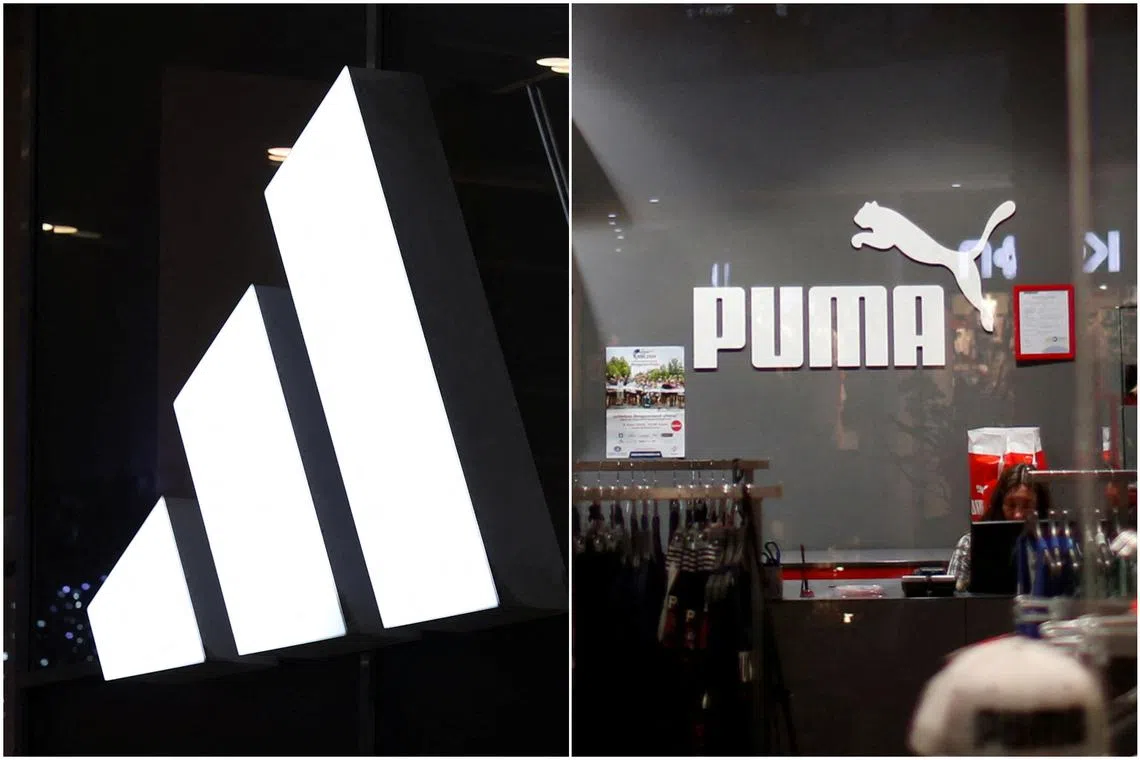Sportswear giants Adidas and Puma weighing job cuts
Sign up now: Get ST's newsletters delivered to your inbox

German sportswear giants Adidas and Puma have both said they are seeking to reduce costs through possible job cuts.
PHOTOS: REUTERS
Follow topic:
FRANKFURT – German sportswear giants Adidas and Puma have both said they are seeking to reduce costs, including through possible job cuts, as they aim to bolster profits.
Adidas said it wanted to ensure “long-term success” and had “begun examining how we can adapt our business’ structures to the reality of our work”.
This could impact the number of positions at the group’s headquarters in Herzogenaurach, southern Germany, a spokesman told AFP on Jan 23, without giving further details.
Changes would be carried out “with the greatest respect and care for employees”, he added.
German news outlet Manager Magazin said the plans could affect up to 500 employees and reflected chief executive Bjorn Gulden’s desire to simplify Adidas.
The news comes as the group is seeking to put a difficult few years behind it following the furore surrounding musician and entrepreneur Kanye West, now known formally as Ye.
Adidas had designed Yeezy trainers in collaboration with West but broke off the partnership after his anti-Semitic comments sparked outrage, leading the firm to write off a portion of the stock and sell the rest at a discount.
Preliminary results released this week showed that Adidas’ operating profits jumped fivefold in 2024, after earnings took a hit in 2023 from the fallout from the West crisis. But Mr Gulden said Adidas still needed to do better, and the company is targeting profit margins of 10 per cent, up from 5.6 per cent in 2024.
Puma, Adidas’ smaller rival, said on Jan 22 that it was also aiming to cut costs, including through “personnel expenses” – suggesting job cuts could be on the table – as it released disappointing results.
Its shares were down as much as 18 per cent on the morning of Jan 23 after net profit for 2024 fell to €282 million (S$398 million) from €305 million in 2023. AFP

